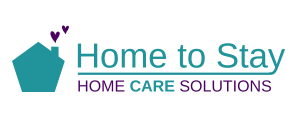Negative Comments You May Have Heard as Family Caregiver
 As a family caregiver to an older adult, you probably receive your share of unsolicited advice. And sometimes what people say to you might make you feel angry, upset, or even guilty. Sometimes you may not even know just why a comment makes you feel the way you do. Most of the time, people say hurtful things to caregivers not out of a desire to make them feel bad, but because of a misguided attempt at helping them. Below are some comments you may have heard and why they might negatively affect you.
As a family caregiver to an older adult, you probably receive your share of unsolicited advice. And sometimes what people say to you might make you feel angry, upset, or even guilty. Sometimes you may not even know just why a comment makes you feel the way you do. Most of the time, people say hurtful things to caregivers not out of a desire to make them feel bad, but because of a misguided attempt at helping them. Below are some comments you may have heard and why they might negatively affect you.
“You Should….”
When caregivers express frustration about a particular aspect of caregiving, many people try to offer suggestions by saying, “You should…” That statement probably makes you feel judged or like the person thinks you’re stupid. That’s especially true if they offer a piece of advice that you’ve already tried or if they make it sound like everything can be solved just by changing one small thing. It’s okay to let the person know if you’ve tried their suggestion already. And, even if the statement gets under your skin, if they’re offering a suggestion you haven’t tried before, thank them for it and consider giving it a try. You never know what might work!
“Your Dad Was So Wonderful!”
Caregivers of older adults with dementia might hear that comment while their parent is still alive. The speaker may be trying to acknowledge the change in your parent while also expressing that they care about them. However, hearing them talk about your loved one using the past tense might be frustrating because they are still very much alive. Respond by saying something like, “Yes, he IS a wonderful person and he always enjoyed your company. Even though he can’t always remember who people are, he still enjoys visits from people who care about him. Let me know if you’d ever like to stop in to see him.”
“I’m So Busy. I Could Never Take on What You’re Doing.”
At best, this comment is meant to be a compliment for everything a caregiver is accomplishing. At worst, it’s an excuse not to help. You might also take it as a suggestion that you have nothing else going on in your life besides caregiving. One way to respond would be to say something like, “Thank you for noticing everything I do for Mom. It is hard for me to juggle my work, children, and spouse, but Mom is important to me, so I do the best I can.” It’s a polite way of reminding them that your life is busy without making the conversation even more awkward.
“Let Me Know If You Need Anything.”
It’s nice when people offer caregivers help, but often this statement isn’t very helpful. At the time it’s said, you may have a thousand things you could use help with, but you’re so exhausted you can’t think of a single thing. You may also have heard that before, but when you called on the person for help, they were “busy.” One way to deal with this situation is to keep a list of tasks with you that you can pull out to give the person some options. Include small things, like cooking a meal or doing a load of laundry, and some larger requests, like spending a few hours with the older adult so you can have some time to yourself.
For caregivers in Turnersville, NJ, and the surrounding areas, call and talk to us at Home to Stay Healthcare Solutions (856) 321-1500.
Sources:
Very Well Health – Things Not to Say to a Caregiver







